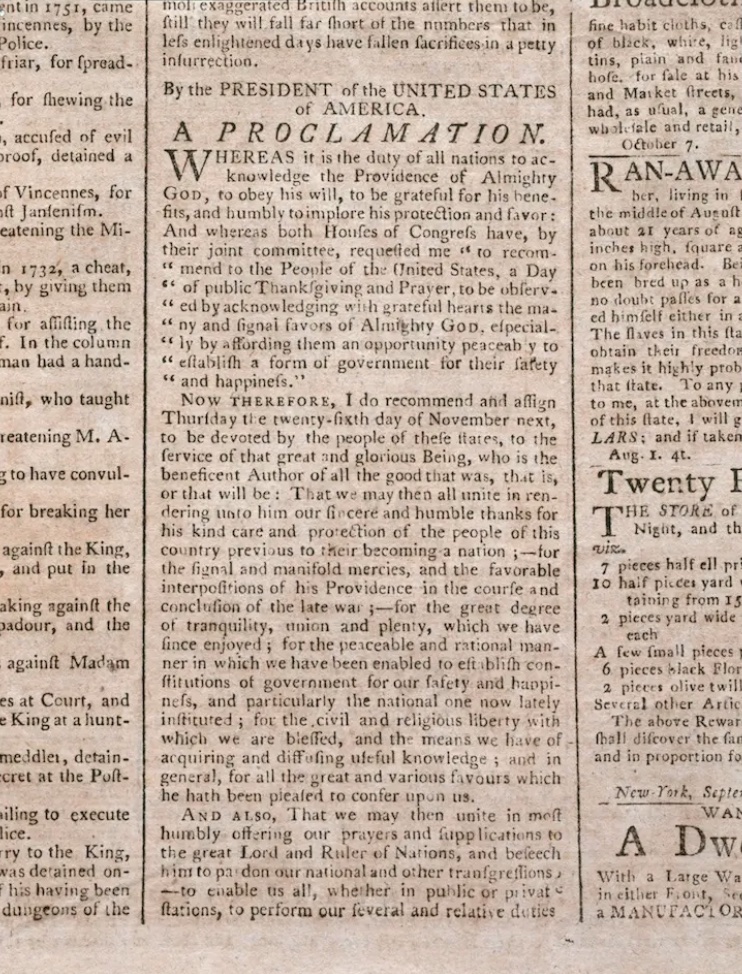By WIN GRUENING
“Peeling the onion” is an expression often used as a metaphor for digging deeper into an issue or not accepting something at face value.
There is no denying that that the history of Thanksgiving has been typically portrayed as a romanticized account of the encounter and relationship of European colonists and Native Americans in the 1600’s.
The decimation of entire tribes resulting from conflicts between European settlers and Indigenous peoples and diseases introduced into America, was largely left out of history books. Fortunately, that is changing and there is growing acknowledgement of the contributions of Native Americans and their part in American history.
Similar historical inaccuracies have occurred over time with Black Americans and other minorities.
But, in their zeal to amend history, many have painted our Founding Fathers and America itself, as irredeemably racist. Critical race theory has infiltrated corporate culture and our education systems. In some school districts, kids are told that skin color is their primary defining characteristic and that virtually everything they have been taught, including mathematics and science, is racist. And one of America’s most treasured holidays, Thanksgiving, is nothing more than celebration of white supremacy.
History is more complicated than that. Nothing about human history is ever as simple as it appears. Recognition of what we did wrong, as well as what we did right, is part of understanding the nuance and complexity of the many layers of history.
Over 200 years ago George Washington recognized several noble reasons for Americans to express thanks.
In his 1789 National Thanksgiving Proclamation, our first president gave thanks for “civil and religious liberty”, God’s “kind care” and “His Providence”. His purpose was to celebrate both the end of the Revolutionary War and the recent ratification of the U.S. Constitution.

In 1827, the noted magazine editor and prolific writer Sarah Josepha Hale — author of the nursery rhyme “Mary Had a Little Lamb” — launched a campaign to establish Thanksgiving as a national holiday. For 36 years, she published numerous editorials and sent scores of letters to governors, senators, presidents and other politicians, earning her the nickname the “Mother of Thanksgiving.”
Due to her efforts and others, Thanksgiving eventually took its place as an American traditional holiday. On Oct. 3, 1863, during America’s bloodiest war, President Abraham Lincoln issued a proclamation establishing a national day of thanksgiving on the last Thursday of November. Drafted, at Lincoln’s request, by Secretary of State William Seward, both men hoped the proclamation would help “heal the wounds of the nation” caused by the Civil War while expressing gratitude for a pivotal Union Army victory at Gettysburg.
On Nov. 19, 1863, one week prior to America’s first national Thanksgiving, Abraham Lincoln delivered one of the most memorable speeches in American history. At the dedication of a military cemetery at Gettysburg, Pennsylvania, Lincoln stirringly reminded a war-weary public why the Union had to fight, and win, the war to end slavery. The Gettysburg Address has since become one of the most historically influential statements of American national purpose.
Echoing the sentiments of his Thanksgiving Day proclamation one month earlier, Lincoln recognized the blessings of our country and then thanked those who sacrificed so much, saying in part:
“Four score and seven years ago our fathers brought forth upon this continent, a new nation, conceived in Liberty, and dedicated to the proposition that all men are created equal.… these dead shall not have died in vain—that this nation, under God, shall have a new birth of freedom—and that government of the people, by the people, for the people, shall not perish from the earth.”
That our nation is imperfect, sometimes struggling to live up to those principles, does not detract from our stated purpose or the progress made towards those ideals.
America still remains a beacon of hope and opportunity for millions of people around the world and, on Thanksgiving Day, we should celebrate that.
After retiring as the senior vice president in charge of business banking for Key Bank in Alaska, Win Gruening began writing op-eds for local and statewide media. He was born and raised in Juneau and graduated from the U.S. Air Force Academy in 1970. He is involved in various local and statewide organizations and currently serves on the board of the Alaska Policy Forum.
